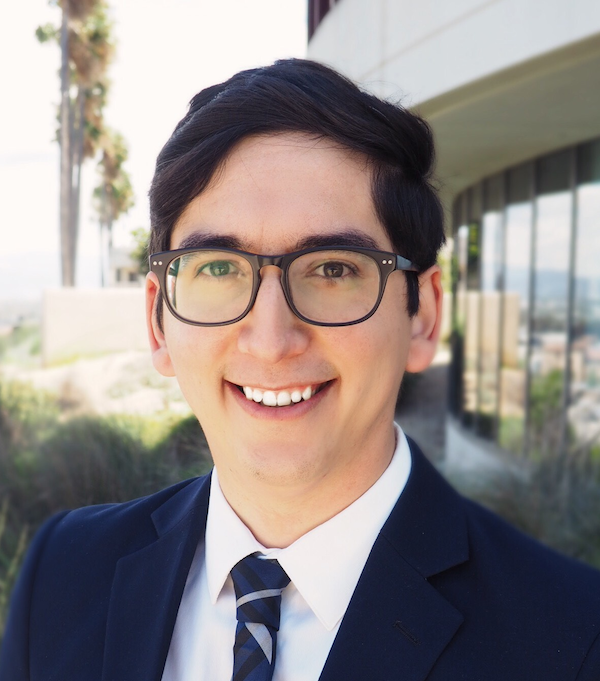For some law students, clinic work during COVID-19 feels more real than ever before

Image from Shutterstock.com.
Daniel Barragan is a second-year law student at the Loyola Law School in Los Angeles. He lives at home with his four brothers, who are frequently not happy when he asks them to shut off their video games so he can get on a Zoom conference call.
“The internet speed here is not great,” says Barragan, who resides in Hawthorne, California.
Through his school’s Immigrant Justice Clinic, he is helping an asylum client seeking a T visa, which is for people who were trafficked into the United States. This man recently lost his job at a restaurant, is struggling to pay rent, and needs help with basic resources such as food, Barragan says.
Before the city’s stay-at-home order went in action, the client and Barragan met once per week. Now, they talk and text by cellphone. From his mother’s home, Barragan got the client in touch with food banks and connected him with a case worker to help the man get access to other services.
“It’s been about learning to be more flexible with clients,” Barragan says regarding how the novel coronavirus pandemic changed his clinical work.
His client primarily speaks Spanish and has limited English. Barragan speaks Spanish, too, but he gets help from his mom with more nuanced translations.
 Daniel Barragan, a law student at the Loyola Law School in Los Angeles.
Daniel Barragan, a law student at the Loyola Law School in Los Angeles.
“It’s difficult because we’re dealing with more difficult topics, like abuse. In person, it’s easier to see if he’s comfortable speaking about it,” he says.
Clinical law students across the country face similar situations, and some say their work helping clients remotely is now much different and more difficult because of the COVID-19 pandemic. However, it comes closer to real-life lawyering than ever before, according to some law professors who direct the clinics.
Although most of the law students are getting little if any actual court time, the clinics provide direct experience working with clients in emergency situations, who rely on legal advice for matters that may be life changing.
“We could have decided to do stimulated hearings or other ways of helping students learn trial skills, which is why they are in clinics,” says Deborah Epstein, a professor at the Georgetown University Law Center in Washington, D.C., who directs its Domestic Violence Clinic. “We decided we really wanted to model for them how professionals should act in times of crisis. Lawyers can contribute enormously to alleviating the burden on many people.”
Her students continue to help people seeking protection orders, but they are now doing that remotely rather than in person. Courts’ computer systems have templates for filing the petitions, but telling your story in a convincing way is hard if you don’t have any legal experience, Epstein says.
“Many times people without legal advice will use the word ‘harassment’ in talking about their experience. Harassment is not a crime in Washington, D.C. You have to allege an accusation that’s punishable. They may have meant stalking, which is a crime. You have to make particular kinds of allegations, and it’s very hard to figure that out,” she adds.
For law students at the University of Alabama School of Law’s Elder Law Clinic in Tuscaloosa, Alabama, which focuses on civil legal services, some clients have no internet access. Or they live in rural areas where reception is spotty, says Allyson E. Gold, a professor at the school and the clinic’s director.
For clients with no digital access, the clinic has a secure drop-off box to leave paperwork. An administrative assistant checks the box daily, scans the documents and emails them to the supervisor, as well as the clinic student assigned to the case. Most of the students left Tuscaloosa and went home to live with family, Gold says.
The situation means more phone conversations with clients, Gold says, and that can be a challenge if you tend to be someone who texts more than talks.
“They’re learning how to navigate a conversation and how to ease into a conversation about legal issues and facts they need to gather. It’s about doing so in a way that the client feels heard and respected,” Gold adds.
Her students, she says, are getting better at doing this during the COVID-19 pandemic.
“Now, it’s not just the facts. I hear them talking more about how their clients are coping with everything going on,” Gold says.
At the University of California at Irvine School of Law’s Consumer Law Clinic, students sometimes use multiple platforms at once to speak with clients. Many of these clients are elderly and face foreclosure after obtaining home loans through the federal government’s Property Assessed Clean Energy Programs.
“The client didn’t use Zoom, and we had an interpreter service. So my partner and I used Zoom, and our professor called into Zoom. She then called the interpreter on her phone, who called the client, so all three were on the Zoom call,” says Joelle Leib, a second-year law student at the University of California school.
At the law center at Touro College’s Education and Youth Justice Clinic in New York, students have had a hard time reaching clients, who are in Suffolk County’s juvenile and criminal justice systems. The clinic also advocates for clients’ educational rights, and so far, schools are doing little if anything to accommodate individual education plans in remote learning, says Melina Healey, the law school’s clinical director.
“We’ve been trying to learn on the fly how to get in touch with young people who are homebound or with people with whom they don’t feel safe and have growing conflicts,” Healey adds.
An upside to all this may be that law students in clinical courses get experience communicating with clients remotely, and that could be a marketable job skill going forward, according to Healey.
“A lot of what the clinics will have to do has not yet come to the surface,” she says, mentioning legal issues that often accompany large unemployment numbers, such as evictions and home foreclosures.
“When all of this breaks open again, it’s going to happen in a massive way, and it will be a real strain on legal services,” Healey adds.
Write a letter to the editor, share a story tip or update, or report an error.


